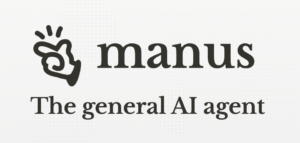Exploring the Journey from Manus AI to Premium Offerings by OpenAI

1. The Impact of Generative AI on Job Expertise
Key Information:
Generative AI is anticipated to affect around 50 million jobs. It will automate some roles while enhancing others. As AI takes over certain technical tasks, employers may change their focus from traditional skill sets to assessing qualities like adaptability, problem-solving abilities, and interpersonal skills. This shift could either lower barriers for job mobility or, conversely, diminish the perceived value of expertise and certifications.
Importance of This Shift:
With AI transforming job roles, human resources (HR) professionals need to revisit their hiring and talent development strategies. The emphasis will likely be on fostering soft skills and an adaptable workforce, necessitating new training and development programs to keep employees competitive. As the significance of credentials and expertise shifts, companies will require novel approaches to evaluate talent and gauge workforce potential.
2. The Emergence of Manus AI from China
Key Information:
Manus AI, a new powerhouse from China, has caught attention for its autonomous capabilities. Unlike standard chatbots, Manus is capable of performing tasks on its own. These tasks include sorting resumes, stock analysis, and real estate evaluations. Its cloud-based framework enables users to access it without their devices being on, which enhances its efficiency. Some analysts draw parallels between Manus and DeepSeek, another AI platform from China. However, concerns regarding data protection and user privacy persist, especially concerning data storage and Manus’ potential affiliations with the Chinese government.
Significant Features of Manus:
Autonomous Task Execution: Manus can independently conduct tasks such as producing a report on climate change. It researches the topic, writes the content, creates visual aids, and assembles a thorough final document—all from a single instruction.
Advanced Multi-Agent Design: This AI functions as a multi-agent system, utilizing multiple specialized models which collaborate to address complex challenges.
Transparency in Workflow: Manus provides real-time visibility, allowing users to see its interactions as it browses websites and processes data, offering an unprecedented level of operational transparency.
Diverse Functionality: It can analyze stock correlations through interactive visual dashboards, create tailored websites, and compile extensive research documents, tasks that typically require various tools.
Why This Matters:
HR professionals ought to monitor how AI agents like Manus influence hiring and other workforce analytics. If such technology becomes mainstream, it could readily automate sourcing talent and financial modeling, altering how HR, finance, and strategic choices are made. However, companies must be aware of the privacy risks and compliance challenges associated with integrating AI into sensitive operations.
3. OpenAI Offers a “PhD-Level” AI: The Cost and Expectations
Key Information:
OpenAI is introducing premium AI packages, one of which is a $20,000-a-month “PhD-level” AI designed for extensive research, alongside lower-tier models for software development and general knowledge assistance. These AIs claim to manage complex data analysis and coding with reasoning abilities comparable to Ph.D. candidates. However, there are ongoing concerns regarding their performance accuracy in real-world applications.
Importance for Businesses:
The rise of high-cost AI assistants indicates a trend where AI may start replacing or complementing specialized knowledge roles. While these AI models could enhance efficiency in research and programming tasks, their reliability and effectiveness compared to human expertise are still in question. As organizations embrace AI, HR will need to devise strategies for incorporating AI tools into knowledge-based tasks while ensuring human oversight and critical thinking remain integral.
4. ServiceNow Acquires Moveworks: A Step into AI Automation
Key Information:
ServiceNow recently purchased Moveworks for $2.85 billion. This acquisition strengthens ServiceNow’s AI capabilities by integrating Moveworks’ enterprise search and AI assistant into its process automation framework. Moveworks’ technology is widely utilized in HR, finance, and customer service fields for automating tasks like ticket resolution and knowledge retrieval.
Significance of this Acquisition:
This transaction underscores the accelerating trend of AI-driven automation in workplaces, impacting roles across HR, IT, and customer service sectors. AI assistants are increasingly vital for managing workflows, supporting employees, and enhancing enterprise search capabilities. HR leaders should evaluate how these AI tools can improve HR operations while considering ethical governance and potential workforce effects.





